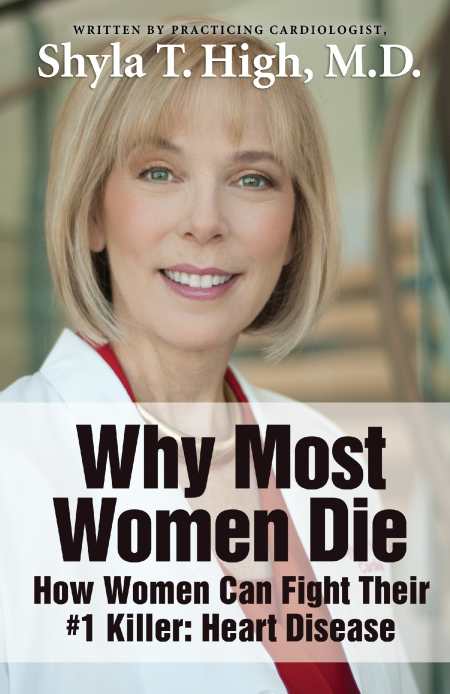Why Most Women Die
How Women Can Fight Their #1 Killer: Heart Disease
The facts about heart disease in American women are tragically absent from our contemporary public dialogue. Dallas-based cardiologist Shyla T. High aims to change that, and her excellent new book, Why Most Women Die: How Women Can Fight Their #1 Killer: Heart Disease, is a significant step toward that end. If this book can’t help you, odds are it will certainly be of use to someone you care about. Currently, more than a third of women in this country over age twenty die from heart disease.
More women than men now die of heart disease (forty-two million American women are living with it today); it kills more women every year than all forms of cancer combined; and African-American women are more at risk than any other population. Add to those statistics the fact that the symptoms for heart disease in women—many don’t feel any extreme chest pain—is different than for men; that the typical mindset among women concerning their own health is negligent (as caretakers for others, women “can’t afford to be sick”); and that only eight percent of cardiologists are women (it often doesn’t occur to male doctors to see their female patients as high risk), and we come closer to understanding why public awareness is so slight.
With a thorough, accessible approach to her passionately argued cause, High communicates her material in a serious yet optimistic tone. She clearly describes the buildup of plaque in arterial walls that leads to the cessation of blood flow precipitating a heart attack and cites smoking, a sedentary lifestyle, and poor eating habits as causes for the rapidly rising numbers of female deaths; she also estimates that improving each of those conditions can prevent seventy-five percent of heart disease in women.
High explains the dangers of high cholesterol, obesity, Diabetes, and high blood pressure, especially as they contribute to heart disease. She also discusses procedures such as angioplasty, stents, and bypass surgery as well as heart medications in detail (she was formerly a pharmacist). Each of the book’s well-organized ten chapters ends with Pulse Points that reiterate the most valuable information conveyed in the preceding pages.
High’s most important piece of advice for at-risk women: stop smoking now. The advice her patients most like to hear: you can likely have sex after a heart attack as part of your physical fitness regimen. With these and other “heal thyself” tactics, readers will feel empowered by High’s book even as they are dismayed by its hard truths.
Reviewed by
Julie Eakin
Disclosure: This article is not an endorsement, but a review. The publisher of this book provided free copies of the book and paid a small fee to have their book reviewed by a professional reviewer. Foreword Reviews and Clarion Reviews make no guarantee that the publisher will receive a positive review. Foreword Magazine, Inc. is disclosing this in accordance with the Federal Trade Commission’s 16 CFR, Part 255.

